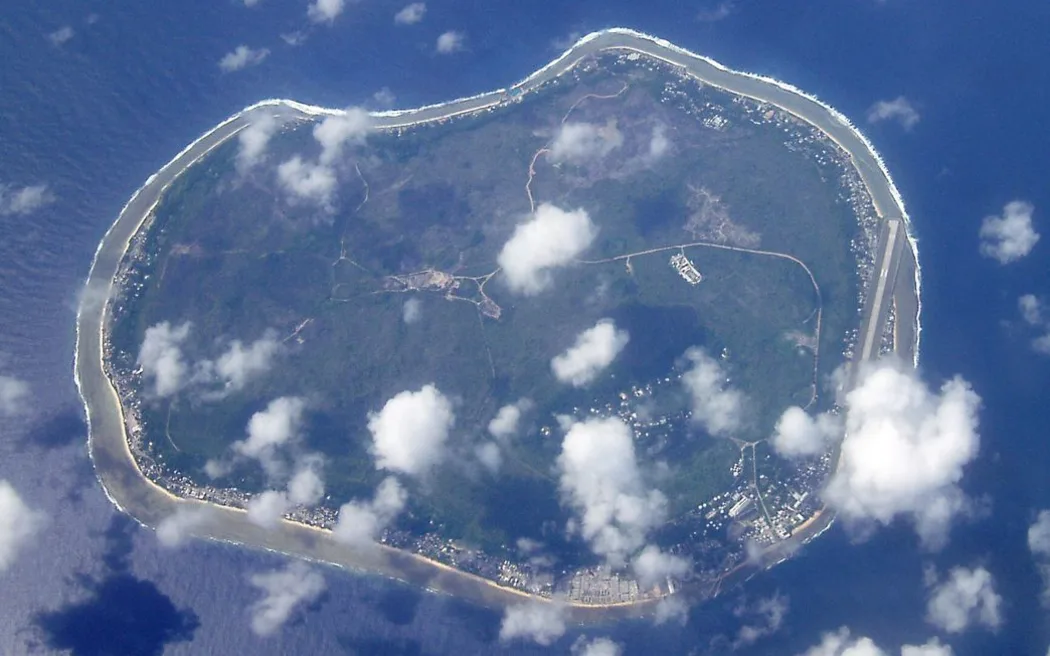Op-Ed by Edward Clark
Generating revenue has always been a challenge for Pacific Island nations, but the amount of funding required has dramatically increased with the need for large-scale climate resilience solutions, including expensive infrastructure.
Small Island Developing States (SIDS) are disproportionately affected by the impacts of climate change, and the United Nations has repeatedly stressed that access to finance, and in particular climate finance, is a critical enabler to help SIDS achieve their Sustainable Development Goals.
Traditional funding mechanisms have proven insufficient, and debt financing places an undue burden on future generations.
This is why Nauru has recently launched an innovative and ambitious programme that will fund critical projects and protect the nation – the Nauru Economic and Climate Resilience Citizenship Programme.
Some may consider citizenship by investment (CBI) controversial, but if done for the right reasons and managed with the highest quality controls, it can be beneficial for both the host country by spurring economic growth and to wealthy individuals who gain greater mobility, security and business opportunities.
Recently an opinion article appeared in this publication titled “Passports for sale: Lessons for Nauru and Solomon Islands from Vanuatu’s EU rebuke.”
It pointed out that the European Parliament recently revoked Vanuatu’s visa-free access to the bloc’s Schengen area.
It noted that “Vanuatu’s experience with CBI and the reputational damage caused is still to fully play out” but wrongly concluded that “The lessons learned so far don’t seem to have resonated strongly enough yet with the government…of Nauru….”
While it is not my place to comment on programs operated by other countries, let me clearly state that the Nauru programme is nothing like that in Vanuatu.
The Nauru programme has been developed for the right reasons. Ninety percent of Nauru’s population lives on the lower coastal ground, and to quote Nauru’s President, David Adeang, “We will not wait for the waves to wash away our homes and infrastructure. The sea is encroaching, and while the world debates climate action, we must take proactive steps to secure our nation’s future.”
The Nauru Economic and Climate Resilience Citizenship Programme represents a paradigm shift in how climate resilience and sustainable development can be approached, and it should not be conflated with that of Vanuatu or any other program across the world.
Yes, it offers investors citizenship in a peaceful island nation, strategically located at the heart of the Pacific, and a Nauruan passport that provides visa-free or visa-on-arrival access to 89 countries, including key destinations such as Hong Kong, the United Arab Emirates, Singapore, the United Kingdom, and Ireland.
But only individuals of the highest calibre who can participate in shaping Nauru’s future will be accepted.
Applicants undergo the strictest and most thorough due diligence procedures. Upon approval, applicants make the required contribution, take the Oath of Allegiance to Nauru, and receive their certificate of citizenship and Nauruan passport.
We work closely with all stakeholders, including international law enforcement agencies, to ensure that the highest levels of international best practices are applied in the review of each citizenship application.
This is a fundamental pillar of our program and a safeguard for Nauru’s reputation and security.
Nauru is acutely aware of the challenges faced by previous and some current citizenship programmes and has learned from these experiences. The robust measures that have been implemented ensure the utmost integrity of the programme.
At the outset, the Government of Nauru engaged Henley & Partners – the global leader in residence and citizenship by investment – to design, set up, and run the programme
The Nauru Programme Office is based in New Zealand and run independently of Henley & Partners and the Nauru Government.
Nauru as a nation has also made enormous progress over the past decade in the area of financial accountability and governance. President Adeang, while speaking recently about the citizenship programme said, “Our alignment with IMF guidance ensures sound financial management and long-term economic stability, while collaboration with the World Bank and OECD provides the expertise and oversight needed to make this initiative a success.”
He went on to say, “These partnerships reflect our commitment to good governance and transparency, strengthening investor confidence and ensuring that every dollar is used effectively.”
Investment migration, done right, can significantly help address climate change and economic vulnerabilities. This program allows conscientious investors to not only acquire an additional citizenship, but to actively assist the future of our planet by contributing to climate adaptation and sustainable development projects in the South Pacific.
These projects include areas of energy, water, and the groundbreaking ‘Higher Ground Initiative’ which involves migrating vulnerable Nauruan homes and critical infrastructure to higher elevation, significantly expanding local food production and restoring degraded natural habitats while pioneering a new Pacific Island urbanism.
Importantly for the region’s reputation, underpinning the Nauru Economic and Climate Resilience Citizenship Programme are the highest standards of compliance and expertise, integrity and a trailblazing approach that will showcase the Pacific to the world.
Edward Clark is the CEO of the Nauru Economic and Climate Resilience Citizenship Programme. He has extensive experience in the banking and financial services sector, specialising in risk, financial crime compliance, regulatory compliance, and governance along with expertise in anti-money laundering, fraud and tax evasion.















